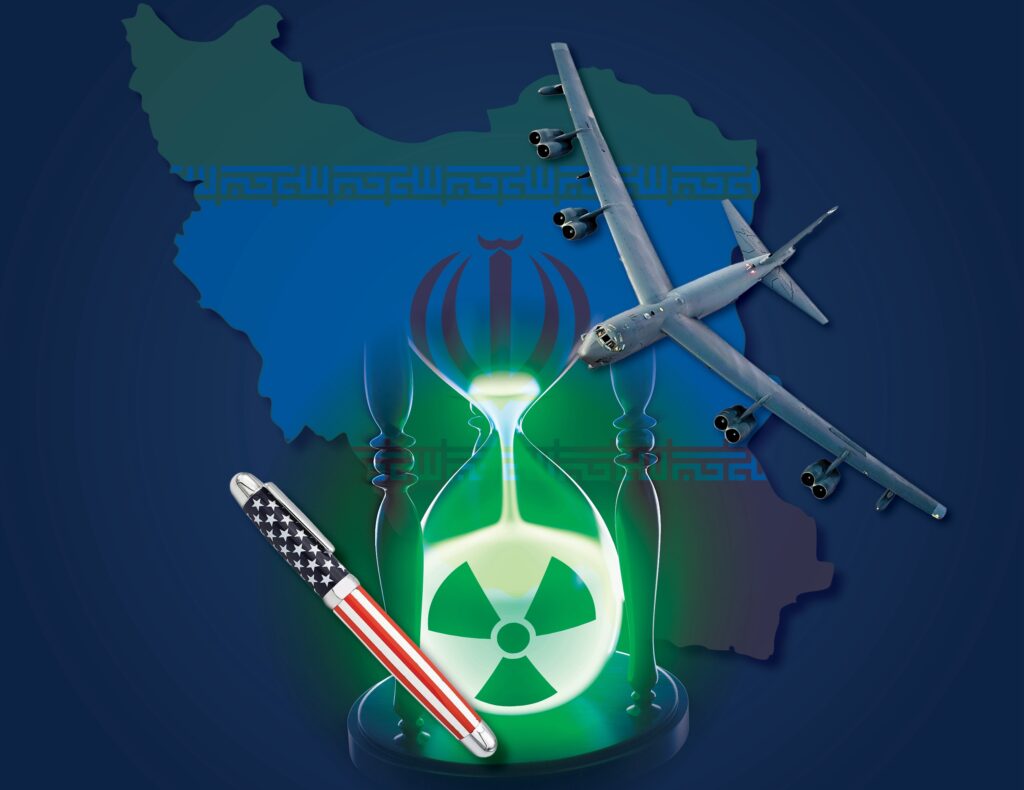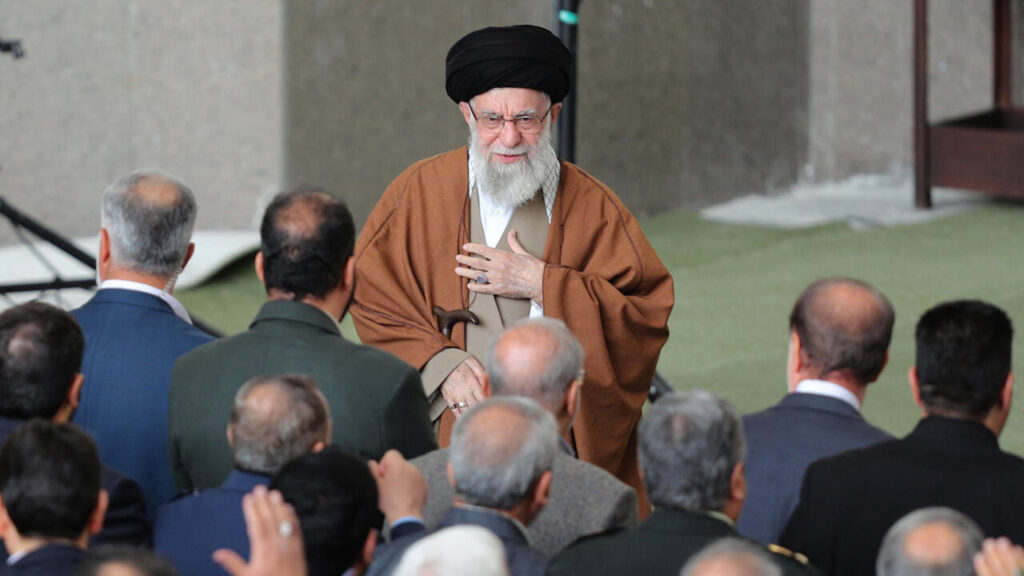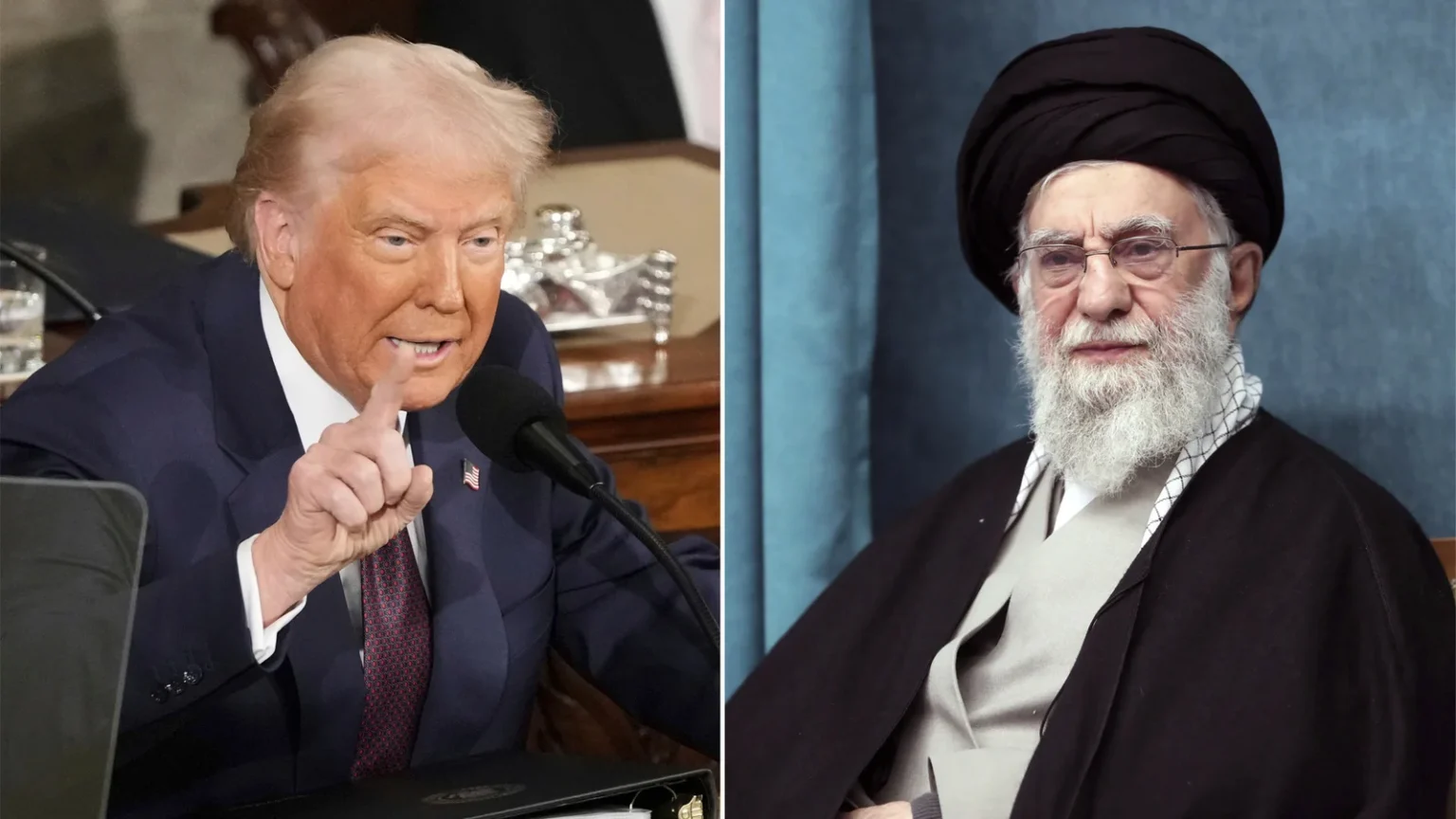Tensions between the United States and Iran have reached new heights as Iran’s senior political figures warn of dire consequences in the wake of U.S. threats regarding its nuclear program. In a recent statement, Ali Larijani, a senior adviser to Iran’s Supreme Leader Ayatollah Ali Khamenei, declared that Iran may be forced to pursue nuclear weapons if it is attacked by the United States or its allies. This comes after President Donald Trump’s warning that the U.S. would take aggressive military action if Iran does not comply with U.S. demands on its nuclear activities.
Iran’s Stance on Nuclear Weapons

Despite Iran’s historical position of not pursuing nuclear weapons, Larijani made it clear that any actions by the U.S. or its allies that threaten Iran’s sovereignty would push the country toward developing such weapons. Speaking on national television, Larijani stated, “We are not moving towards (nuclear) weapons, but if you do something wrong in the Iranian nuclear issue, you will force Iran to move towards that because it has to defend itself.” Larijani emphasized that Iran does not want to take such a step, but would be left with no choice if its security is compromised.
U.S. President Trump’s Warning
The escalation began with President Trump’s warning to Iran, in which he told NBC News, “There will be bombing” if Iran fails to meet U.S. demands concerning its nuclear program. He also suggested implementing “secondary tariffs” on Iran, though the specific details of these tariffs remain unclear. Trump’s remarks have increased fears of military confrontation, further complicating the already volatile situation in the Middle East.
Khamenei’s Response to U.S. Threats

In a swift rebuttal, Iran’s Supreme Leader Ayatollah Ali Khamenei vowed that any military action against Iran would be met with a powerful counterattack. “If it is carried out, they will definitely receive a strong counterattack,” Khamenei warned in a speech marking the end of Ramadan, signaling Iran’s readiness to defend itself against any external aggression.
Diplomatic and Military Warnings
In addition to Khamenei’s remarks, Iran’s diplomatic and military leadership has ramped up its rhetoric. Iran formally responded to Trump’s threats by sending a letter to the United Nations Security Council, condemning the “warmongering provocations” coming from the United States. Iran’s UN ambassador, Amir Saeid Iravani, warned that Iran would “respond swiftly and decisively to any act of aggression or attack by the United States or its proxy, the Israeli regime.”
On the military front, General Amirali Hajizadeh, a commander in Iran’s Islamic Revolutionary Guard Corps (IRGC), made a pointed remark about the U.S. military presence in the region, stating, “The Americans have at least 10 bases in the region around Iran, and they have 50,000 troops. Someone who is in a glass room shouldn’t throw stones at anyone.”
Global Implications of U.S.-Iran Tensions
The growing tensions between the U.S. and Iran have significant implications for global security. With Iran threatening to take drastic measures if its security is threatened, the situation has become a major point of concern for international peace and stability. The potential for military conflict in the Middle East, particularly over nuclear weapons development, is a scenario that could have widespread consequences for global trade, alliances, and security.
Conclusion: A Critical Juncture in U.S.-Iran Relations
As the U.S. and Iran navigate these escalating tensions, the world is closely watching how both nations will respond to one another. With President Trump’s firm stance on Iran’s nuclear program and Iran’s clear message of defense, the possibility of further military escalation remains high. The situation will undoubtedly continue to develop, and the international community must remain vigilant to prevent further escalation and the potential for conflict.




